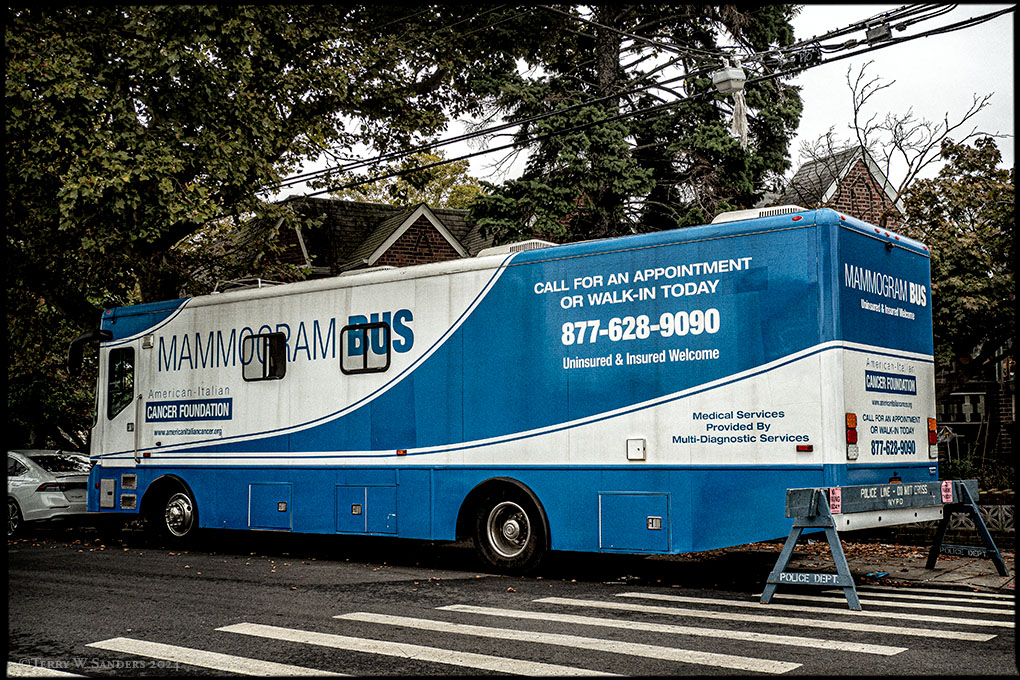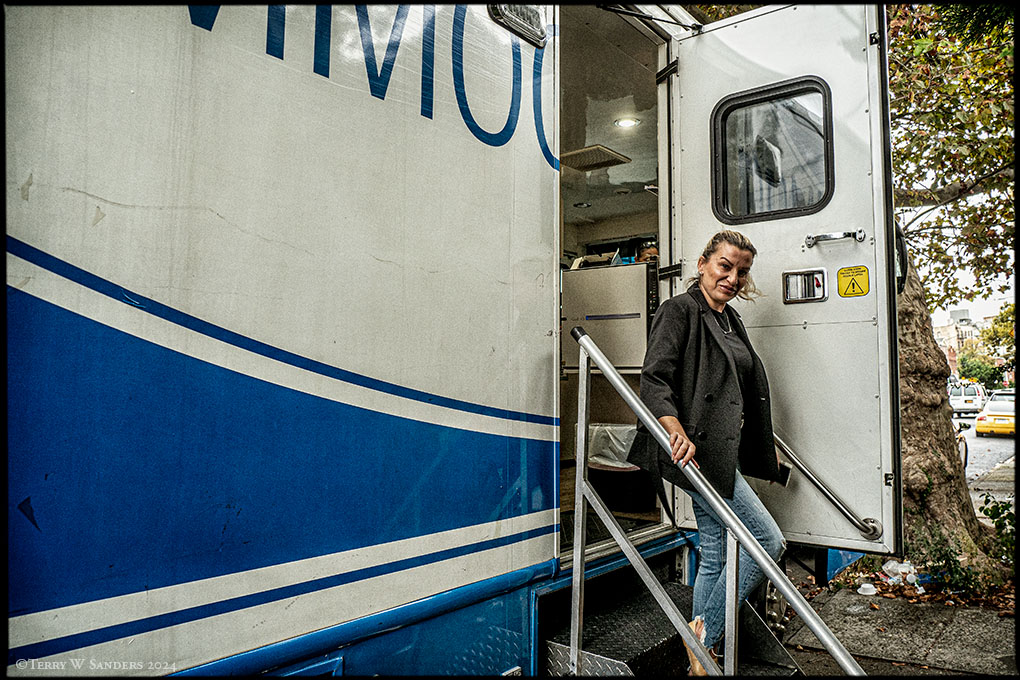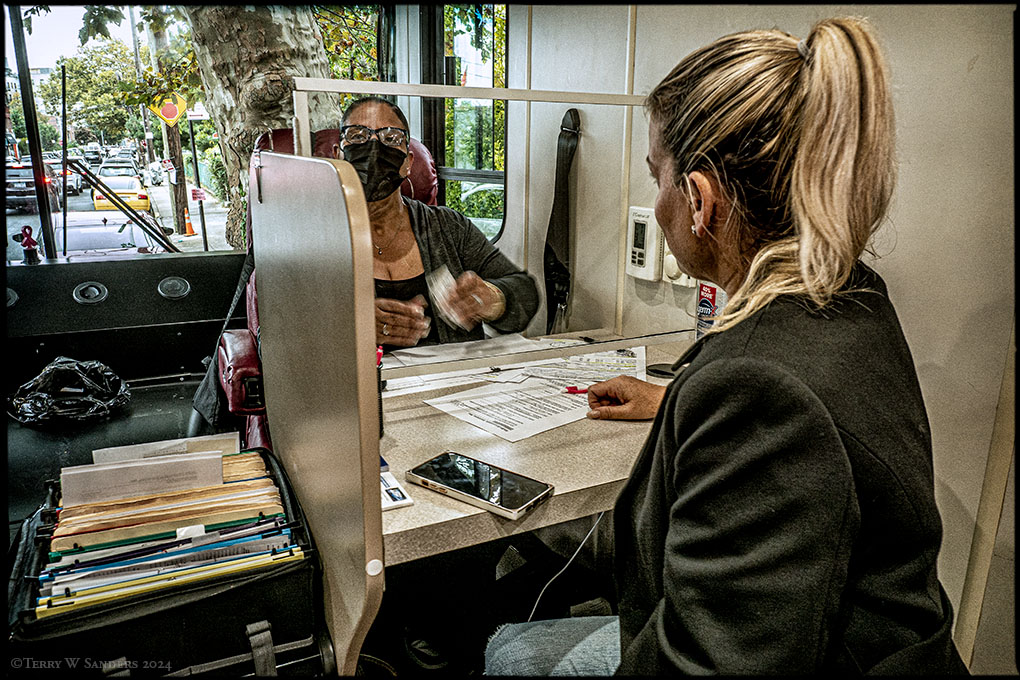This morning in Sheepshead Bay, a mobile mammogram test bus sits parked in front of the offices of New York City Councilwoman Inna Vernikov. The program is part of the American-Italian Cancer Foundation’s (AICF) efforts to bring screening, and early detection, to under-served communities. The bus accepts insurance and offers free screenings to those without. 68% of patients in the past year were uninsured or underinsured, and 70% reported annual household income of less than $25,000. “Every year the councilwoman gets in touch with AICF and we set it up,” explains Erica Koyfman, a member of Vernikov’s staff. AICF’s mobile unit is constantly on the move, serving a different community in the city every day.

Patients enter the front of the bus for intake, moving down one room to see a nurse practitioner who conducts a physical exam, and then to the back of the bus where they are scanned on a mammogram machine. “It’s a good job,” says Dina Laureano, the mammography technician onboard the bus. Dina has been in this line of work for 15 years, and has been on the bus with AICF for the last two.

She is aware of the anxieties surrounding the test and sees her role as more than operating a machine: “people feel vulnerable, because they are undressed from the top,” she explains. “They feel like they can speak to you more candidly. I become a little psychiatrist for them as well.” For Dina, hearing people out and keeping them comfortable is an essential part of the job.

The unit’s nurse practitioner, Regine De La Peña, performs a physical examination before the machine test, teaching patients what they are supposed to report to physicians. She hails from Port-Au-Prince, Haiti, where she was an emergency room physician, and took part in rescue efforts in the wake of the earthquake that rocked the country in 2010. Working on the mobile unit for 3 years, she shares Dina’s outlook, conscious of her role in helping patients navigate a process that is fundamentally anxiety-inducing: “a mammogram is a screening process, it’s not going to the gym or going to a fancy party, or anything happy.”

Constantly moving across the city to serve different communities, Regine has a major asset up her sleeve in keeping patients comfortable. “I speak five languages – English, French, Spanish, Creole, and Portuguese,” she says, adding that she’s also learning Tagalog through her Filipino husband, as well as Russian to better serve her patients. Fortunately, Dina can cover her on that front today: “Dina said ‘Regine today we’re in my neighborhood’ and I said ‘Yep, take the lead!’” Both Dina and Regine like the variety afforded by working on a mobile unit, particularly that they get to “discover new people.”
According to AICF’s annual report, they have screened over 3,500 women in the twelve-month period ending in June 2024. 7 cases of cancer were detected as a result.

Erica Koyfman, Councilwoman’s Vernikov’s staff member, seizes the opportunity to get her first mammogram, which she says her doctor told her is a bit overdue. She finds the experience more convenient than going through conventional channels. “The simplicity of the bus is what’s really good,” she explains after her exam. “For me to go, make an appointment to radiology, get to [my] appointment, there’s always a wait. Here there’s no wait, you’re in and out.” Koyfman is on the bus for about ten minutes altogether. It is not uncommon for conventional appointments for mammograms to take months.

As far as nerves, Koyfman encourages people to face them head-on. “If something is about to happen to you, let it be known, hope for the best, be strong, and just know that this is for the better good.”












